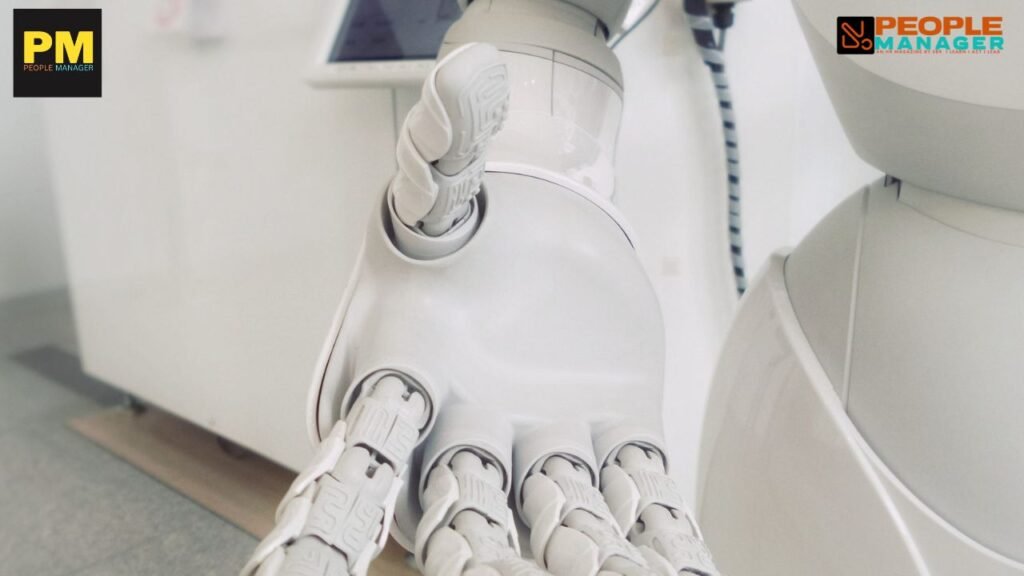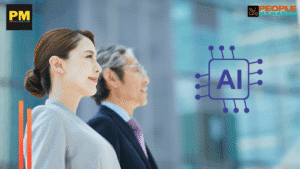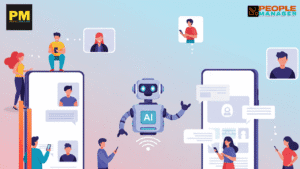AI Can Support A More Holistic Approach To HR: A global Survey
Artificial intelligence (AI) has the potential to completely revolutionize the human resources business. A recent study of leaders performed by Eightfold AI for their publication "The Future of Work: Intelligent by Design" indicated that AI was widely deployed in fundamental HR activities.

AI Can Support A More Holistic Approach To HR Function, revealed by A global Survey Report
Over three-quarters of respondents said they currently use AI to manage employee records and handle payroll and benefits in the UK. Approximately 70-75 percent of respondents said they were using AI in their recruiting, hiring, performance management, and onboarding processes. The vast majority, 92 percent, stated that they planned to increase their usage of AI in one or more areas of HR.
This data demonstrates how AI has progressed from an emerging trend to an essential component of HR operations at today’s best firms.
To make hiring operations more efficient, AI technology can be utilized to automate time-consuming administrative tasks such as resume screening, skills testing, video interviews, and other candidate assessments.
AI-powered predictive analytics may examine historical data on aspects such as performance and engagement to identify hazardous profiles, high-potential personnel, and development possibilities.
HR chatbots respond instantly to common employee questions regarding policy, perks, time off requests, and other topics. Machine learning could be used by AI-driven learning platforms to adapt training content and recommendations to each employee’s skills, requirements, and goals for more effective skill development.
AI could also be effective for monitoring anonymous employee comments or messaging on internal platforms in real time to assess engagement, contentment, and concerns.
In general, these AI implementation strategies could lead to more proactive, efficient, and personalized management.
While some may perceive this as a negative trend, the rising use of AI technologies in HR allows professionals to focus on more strategic human-centered work, as AIs cannot yet manage empathy.
Future HR will take a more comprehensive approach to helping people throughout their careers, not limited by time-consuming performance tracking and retention activities. Onboarding will become a more engaging experience, providing new employees with a comprehensive feeling of purpose and community from the start.
The aim is to strike a balance between technology and humanity. HR directors must embrace the possibilities of AI with caution and transparency. It is critical to have regular conversations with employees about how technology may enhance human capacities.
AI can and should be used ethically, with an emphasis on developing rather than replacing people. The human factor is still important in human resources. If done correctly, AI can free HR to deliver the personalized, human experiences that the future of work requires.
Given recent developments like as the shift to remote and hybrid work, the talent war, and the emphasis on diversity, equity, and inclusion, a more holistic approach to human resources is critical.
AI is already altering millions of occupations around the world. According to Goldman Sachs, AI automates 25% of employment duties, and up to 46% of tasks in office and administrative support occupations particularly.
Its successful adoption in HR practices could be the impetus we need to develop a more humane approach to addressing employees’ needs and concerns.
- Pernod Ricard India introduces Cheers VRorld, an industry-first VR-powered onboarding experience in the Alco-Bev sector - February 11, 2026
- Jio-bp Appoints Sareeta Bhatikar as Chief Human Resources Officer to Steer Next Phase of Growth - February 11, 2026
- India Keeps Hiring as Global Markets Slow: Michael Page India Salary Report-26 - February 6, 2026









